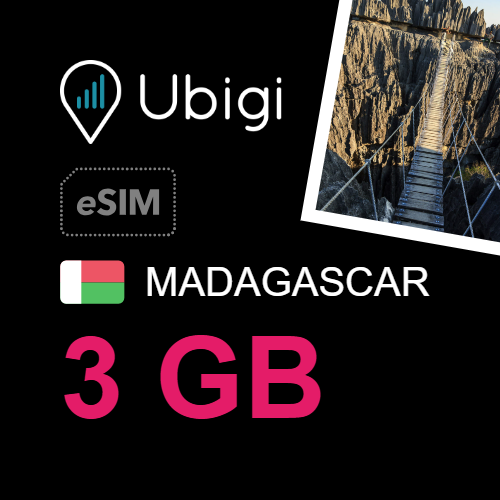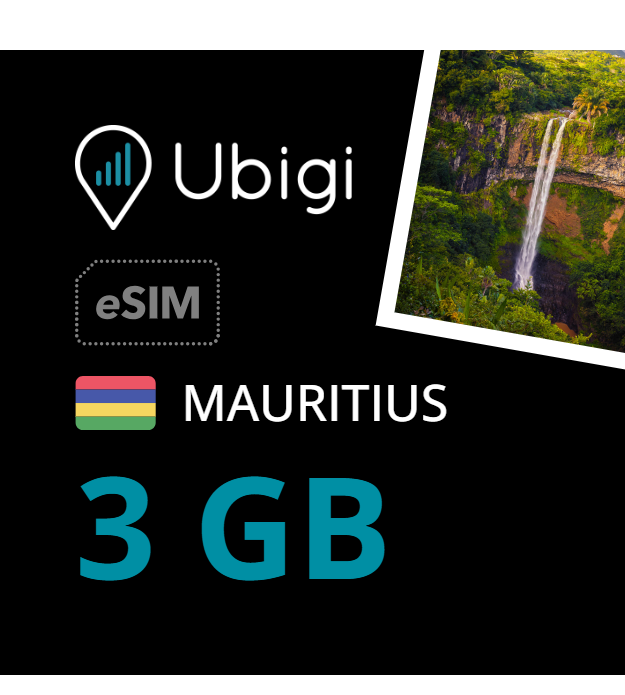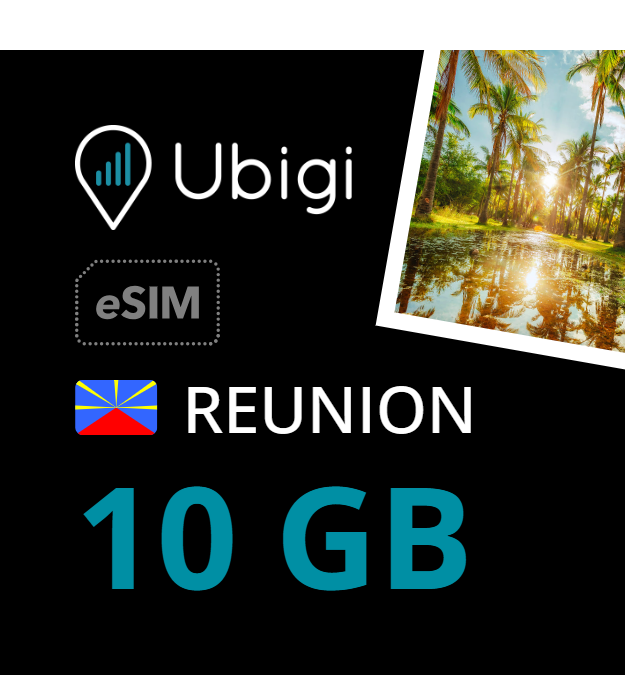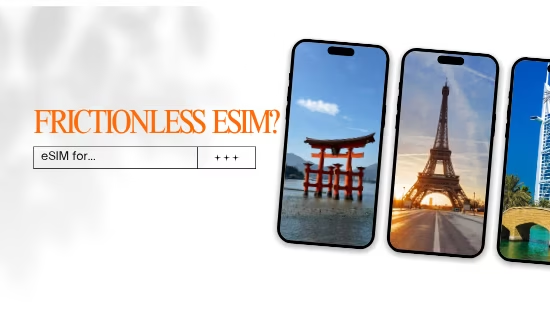
Ubigi and BlueSky Launch Integrated eSIM Service for Travelers Across the Indian Ocean
When you think about travel in 2025, one thing is non-negotiable: connectivity. Whether it’s uploading sunset shots from Mauritius, managing remote work from Réunion, or navigating airport transfers in Madagascar, being online is now as essential as your passport. Recognizing this, Ubigi, the globaI eSIM provider powered by Transatel (an NTT Group company), has teamed up with BlueSky, Rogers Aviation’s long-standing travel network, to bring seamless mobile connectivity straight into the heart of the Indian Ocean’s growing tourism scene.
This isn’t just another partnership. It’s a move that reflects a broader shift—where travel experiences and digital convenience are finally coming together in a tangible, traveler-first way.
Connecting a Region on the Rise
With over 50 years of experience, BlueSky isn’t just a travel agency—it’s part of the travel DNA of the Indian Ocean. Operating across Mauritius, Madagascar, Mozambique, and Réunion Island, the brand has been trusted by generations of travelers for both leisure and business journeys.
Now, thanks to the integration of Ubigi’s eSIM, travelers booking through BlueSky can arrive fully connected — without hunting for local SIM cards or dealing with airport Wi-Fi dead zones. As soon as they land, they can scan a QR code, activate their eSIM, and get instant access to affordable data plans.
“This partnership meets a growing expectation among travelers: to stay connected, simply and instantly, as soon as they land,” says Marie-Julie Le Guen, Marketing and Operations Director at Ubigi. “By combining our solutions with BlueSky’s on-the-ground expertise, we’re making international mobility a whole lot easier.”
Riding the Wave of Tourism Growth
The timing couldn’t be better. The Indian Ocean region is experiencing one of its strongest tourism rebounds in years. In 2024, Mauritius welcomed over 1.38 million visitors, marking a 6.7% increase compared to 2023. France remains the largest outbound market, with nearly 340,000 travelers, followed closely by Réunion and Germany.
Meanwhile, La Réunion set an all-time record of 550,000 visitors, fueled by renewed flight connectivity and longer average stays — 11.4 nights in Mauritius and 18 days in Réunion. Those longer stays underline a growing demand for reliable, high-speed mobile data to support everything from leisure browsing and social sharing to remote work and digital banking.
In this context, the Ubigi–BlueSky collaboration doesn’t just make sense — it answers an urgent need. With international tourists increasingly relying on eSIM technology for flexibility and transparency, this integration places both companies ahead of the curve.
From Booking to Boarding: A Fully Connected Journey
What makes this partnership stand out is the way connectivity is embedded directly into the travel experience. When customers book through BlueSky—whether for a leisure trip, a bleisure getaway, or a corporate itinerary—they’re offered an Ubigi eSIM right at the booking stage.
That means travelers can activate their mobile plan even before departure, ensuring instant data access upon arrival. No queues. No paperwork. No roaming bill shock. Just a smooth digital onboarding process that continues into their trip.
This represents a growing convergence between travel and telecom, where connectivity becomes part of the customer journey, not an afterthought. It’s a model we’re seeing gain traction across the industry—from airlines integrating Wi-Fi bundles to hotels offering in-room eSIM QR codes for guests.
For both Ubigi and BlueSky, this is about adapting to a new generation of travelers who value speed, simplicity, and flexibility.
Inside Ubigi: A Quiet Giant of Global eSIM Connectivity
Founded in 2017 by Transatel, a subsidiary of Japan’s NTT Group, Ubigi has quietly become one of the most trusted names in the eSIM market. It operates in over 200 destinations, offering prepaid 4G and 5G data plans at near-local rates.
Ubigi’s reach extends far beyond smartphones — it’s embedded in laptops, tablets, SD-WAN routers, and even connected cars from brands like BMW, Stellantis, Toyota, and Jaguar Land Rover. That means the same infrastructure powering your eSIM in Mauritius could be keeping a luxury vehicle online in Tokyo or Paris.
With millions of users — both private and corporate — and partnerships with 300+ mobile operators worldwide, Ubigi has built a strong foundation for cross-border mobility. It’s not just an app; it’s a complete telecom network designed for the connected traveler.
The Bigger Picture: A Regional Shift Toward Smart Travel
This collaboration also signals something larger happening in the Indian Ocean region — a transition toward digitally integrated travel ecosystems.
As destinations like Mauritius and Réunion attract a mix of remote workers, digital nomads, and long-stay tourists, the demand for affordable, borderless mobile data is skyrocketing. The pandemic-era push toward remote work reshaped travel behavior — and eSIMs have quietly become the backbone of that shift.
Today’s traveler expects to manage connectivity like any other travel service: bookable, flexible, transparent, and mobile-first. This partnership fits squarely within that vision. Ubigi eSIM BlueSky partnership
Where Ubigi Fits Among Competitors
Ubigi’s move mirrors trends seen across the travel tech sector, where eSIM providers are increasingly aligning with airlines, travel agencies, and hospitality networks. Competitors like Airalo, BNESIM, and Airhub have taken similar steps — integrating their eSIM solutions into travel booking platforms or loyalty programs.
However, Ubigi stands out for its deep telecom backbone and enterprise-level infrastructure via Transatel. While many eSIM startups rely on aggregators or resellers, Ubigi operates as a licensed global mobile operator, ensuring more stable connections and better data routing.
Moreover, its move into regional partnerships—instead of just direct-to-consumer marketing—positions it to capture a niche that’s often overlooked: travel intermediaries and local agencies. By embedding connectivity where travel decisions are made, Ubigi is effectively redefining how people “buy” mobile data for travel.
Conclusion: Smart Connectivity Becomes the New Standard
Ubigi’s partnership with BlueSky isn’t just a smart business move; it’s a sign of where global travel is heading. The line between travel services and telecom services is fading fast, and the winners will be those who integrate both seamlessly.
In regions like the Indian Ocean—where tourism is booming and connectivity gaps still exist—this kind of collaboration could set a precedent. It demonstrates how local expertise and global tech can combine to enhance the traveler experience.
As we see more players follow suit, from Airalo’s partnerships with airlines to GigSky’s corporate travel bundles, one thing becomes clear: eSIM technology isn’t a side feature anymore—it’s becoming a core part of travel infrastructure.
And with trusted names like Ubigi leading the way, that future of effortless, borderless connectivity looks closer than ever.












